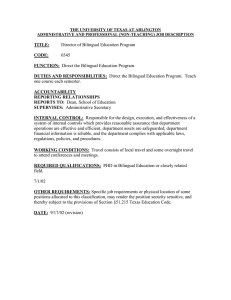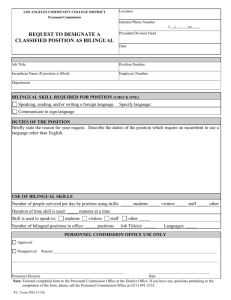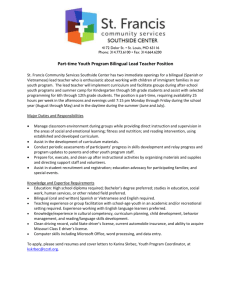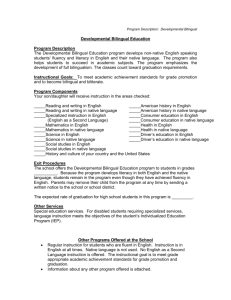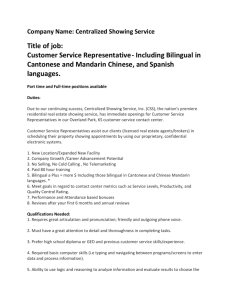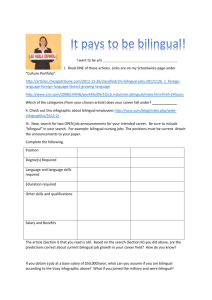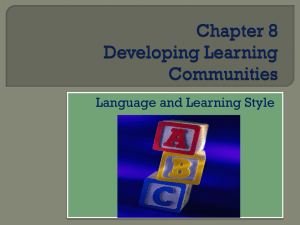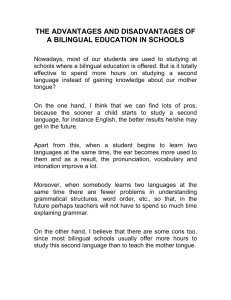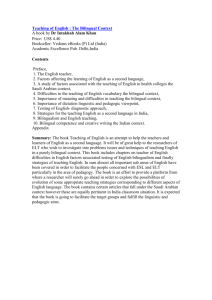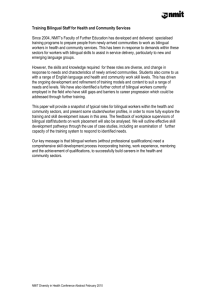Speak to your child in the language you know best
advertisement
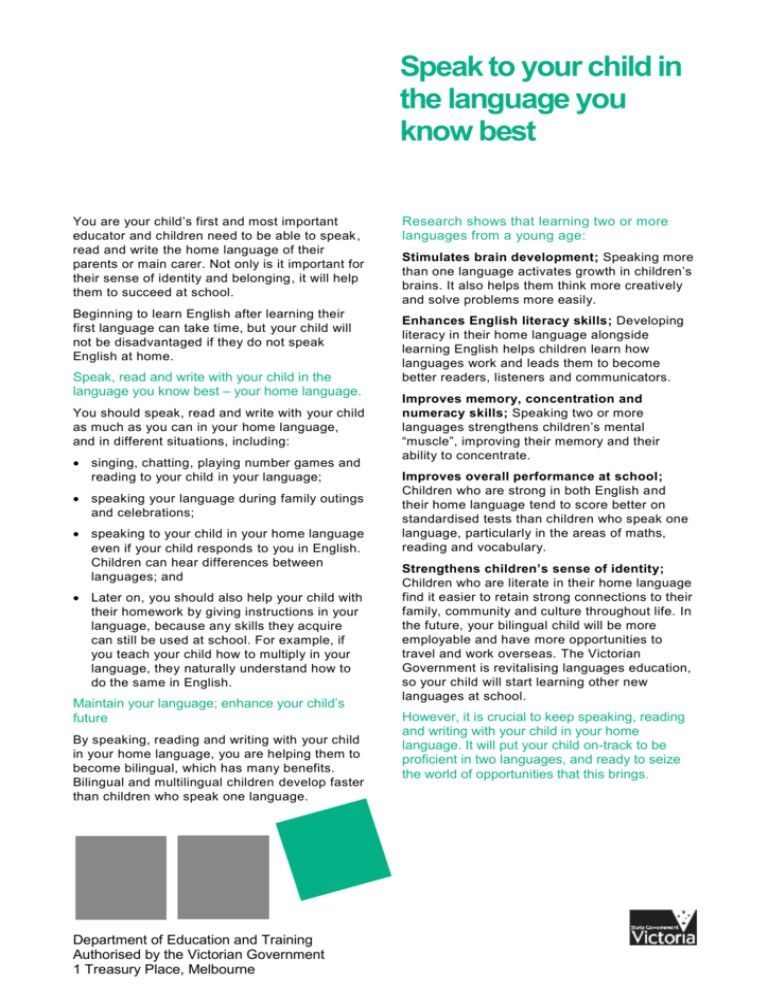
Speak to your child in the language you know best You are your child’s first and most important educator and children need to be able to speak, read and write the home language of their parents or main carer. Not only is it important for their sense of identity and belonging, it will help them to succeed at school. Beginning to learn English after learning their first language can take time, but your child will not be disadvantaged if they do not speak English at home. Speak, read and write with your child in the language you know best – your home language. You should speak, read and write with your child as much as you can in your home language, and in different situations, including: singing, chatting, playing number games and reading to your child in your language; speaking your language during family outings and celebrations; speaking to your child in your home language even if your child responds to you in English. Children can hear differences between languages; and Later on, you should also help your child with their homework by giving instructions in your language, because any skills they acquire can still be used at school. For example, if you teach your child how to multiply in your language, they naturally understand how to do the same in English. Maintain your language; enhance your child’s future By speaking, reading and writing with your child in your home language, you are helping them to become bilingual, which has many benefits. Bilingual and multilingual children develop faster than children who speak one language. Department of Education and Training Authorised by the Victorian Government 1 Treasury Place, Melbourne Research shows that learning two or more languages from a young age: Stimulates brain development; Speaking more than one language activates growth in children’s brains. It also helps them think more creatively and solve problems more easily. Enhances English literacy skills; Developing literacy in their home language alongside learning English helps children learn how languages work and leads them to become better readers, listeners and communicators. Improves memory, concentration and numeracy skills; Speaking two or more languages strengthens children’s mental “muscle”, improving their memory and their ability to concentrate. Improves overall performance at school; Children who are strong in both English and their home language tend to score better on standardised tests than children who speak one language, particularly in the areas of maths, reading and vocabulary. Strengthens children’s sense of identity; Children who are literate in their home language find it easier to retain strong connections to their family, community and culture throughout life. In the future, your bilingual child will be more employable and have more opportunities to travel and work overseas. The Victorian Government is revitalising languages education, so your child will start learning other new languages at school. However, it is crucial to keep speaking, reading and writing with your child in your home language. It will put your child on-track to be proficient in two languages, and ready to seize the world of opportunities that this brings.
